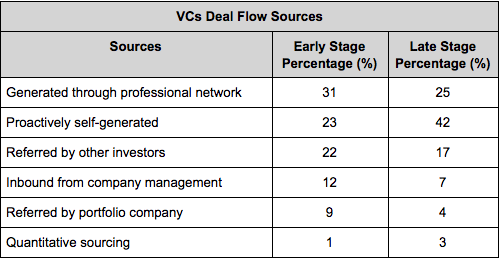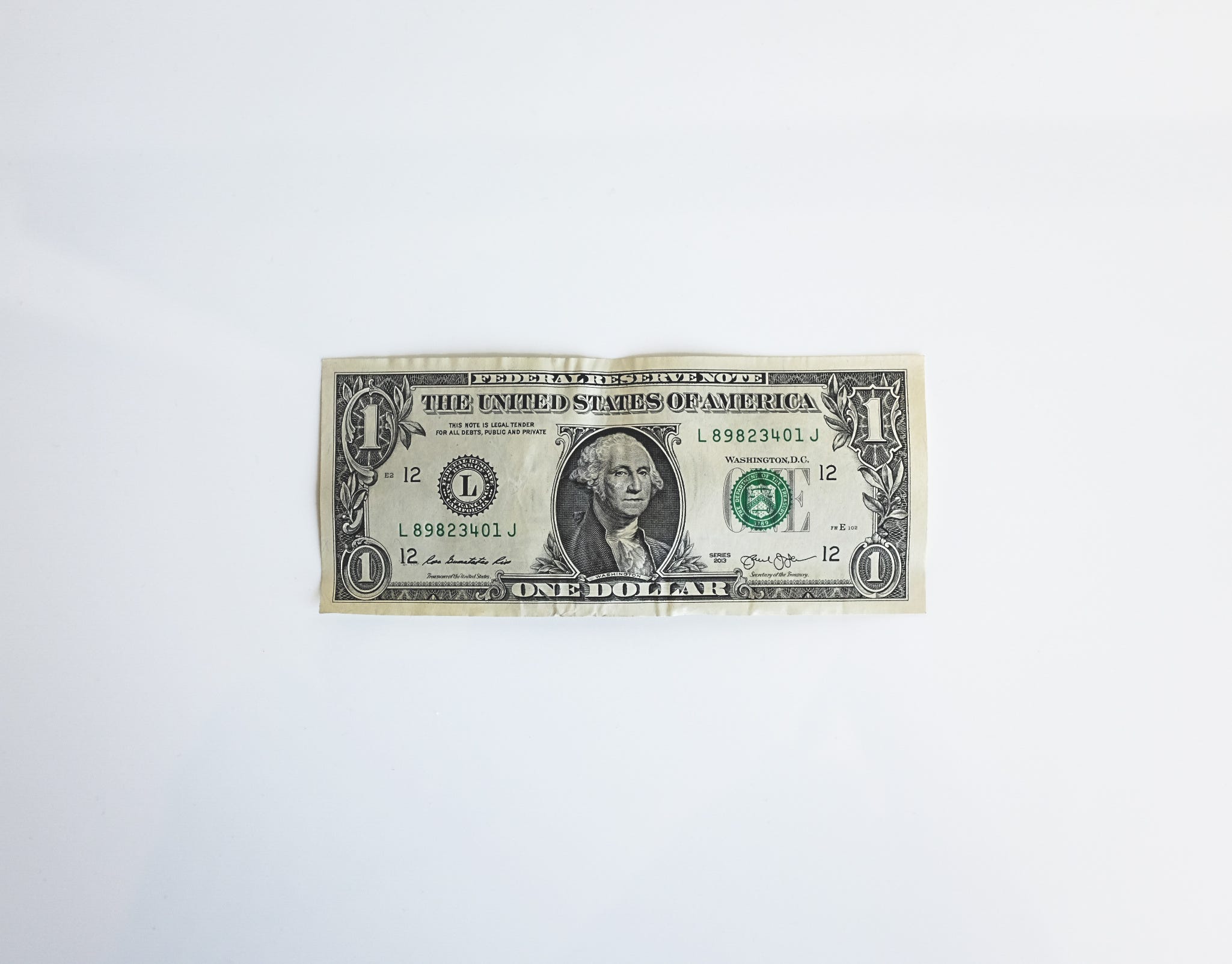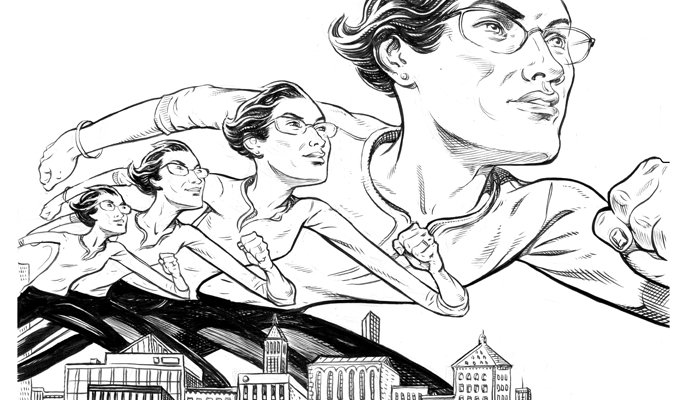   
CEO Picks - The most popular editorials that have stood the test of time! The Man Who Saw the Pandemic Coming
 Will the world now wake up to the global threat of zoonotic diseases? Will the world now wake up to the global threat of zoonotic diseases?
Dennis Carroll doesn't mean to sound callous when he says the coronavirus outbreak was predictable. And he doesn't. He sounds sympathetic to people frightened by the outbreak. He has been an eyewitness to people around the world suffering from similar viruses. Most of all, Carroll sounds authoritative.
For decades, Carroll has been a leading voice about the threat of zoonotic spillover, the transmission of pathogens from nonhuman animals to us. Scientists are confident the current outbreak, which began in Wuhan, China, stemmed from a virus inherent in bats. In 2009, after years of studying infectious diseases at the Centers for Disease Control and Prevention, and the United States Agency for International Development (USAID), Carroll formed a USAID program called PREDICT, where he guided trailblazing research into viruses hiding, and waiting to emerge, in animals around the world.
"Dennis is a visionary," says Christine K. Johnson, an epidemiologist at the One Health Institute at the University of California, Davis, where she is a professor in the School of Veterinary Medicine. "He took the reactive approach to infectious diseases and turned it on its head. He said, 'We're going to work on a proactive approach to help countries prepare for the emergence of infectious diseases.'"
Continued here
|
Want to Train Yourself to Succeed? Science Says These 3 Things Matter Most
 Henry Ford once famously said: "Whether you think that you can, or that you can't, you are usually right." Henry Ford once famously said: "Whether you think that you can, or that you can't, you are usually right."
It's a pithy quote (Ford was a quote machine), but now, just over 70 years after his death, a new research project funded by the National Science Foundation points to a wealth of evidence that backs him up.
The research focused on college students, specifically studying factors that made them more likely to good grades, stay in school, and graduate. There were three findings that together make up what I'm going to go ahead and call the Henry Ford rule: Learning to believe in yourself and your abilities, empirical research suggests, makes you more likely to succeed in and of itself.
Here's the research project, the takeaways, and how you can use them to improve your life--whether you're still a student or have long since left the classroom.
Continued here
|
Build a Network- Even When You Don't Think You Need One
 There are plenty of reasons professionals don't network enough. We're all busy. Some have stressful family obligations. Others are introverts who don't take to the process naturally. Of course, you can find time-efficient ways to connect with others and learn new techniques that will make you more comfortable - if there's sufficient will to change. There are plenty of reasons professionals don't network enough. We're all busy. Some have stressful family obligations. Others are introverts who don't take to the process naturally. Of course, you can find time-efficient ways to connect with others and learn new techniques that will make you more comfortable - if there's sufficient will to change.
But in my work coaching high-level executives, I've come to realize that many of the professionals who have the hardest time building a network are those who view themselves as "lone wolves" who have succeeded on their own merits and don't rely on others. Intellectually, they recognize the benefits of networking, and know they should do it. But they've achieved their current status on the strength of solo (or near solo) efforts, and adjusting their mindset and behaviors can be challenging.
If you've avoided networking in the past because of lone-wolf tendencies, here are four strategies you can use to reframe the process and turn it into something you actually enjoy doing.
Continued here
|
What Amazing Bosses Do Differently
 We all know that job satisfaction often hinges on the quality of the relationships we have with our bosses. Yet in today's rapidly evolving, 24/7 workplaces, it's not always clear what managers should do to create the most satisfying work experiences and the happiest employees. My research into the world's most successful bosses has unearthed some common practices that make work much more meaningful and enjoyable. If you supervise others, make sure you do the following: We all know that job satisfaction often hinges on the quality of the relationships we have with our bosses. Yet in today's rapidly evolving, 24/7 workplaces, it's not always clear what managers should do to create the most satisfying work experiences and the happiest employees. My research into the world's most successful bosses has unearthed some common practices that make work much more meaningful and enjoyable. If you supervise others, make sure you do the following:
Continued here
|
The Most Common Type of Incompetent Leader
 A young friend recently remarked that the worst boss he ever had would provide him with feedback that always consisted of "You're doing a great job." But they both knew it wasn't true - the organization was in disarray, turnover was excessive, and customers were not happy. My friend was giving it his all, but he needed more support and better feedback than he received. He wanted a leader who would be around when he needed them, and who would give him substantive advice, not platitudes. As a measure of his frustration, he said, "I would rather have had a boss who yelled at me or made unrealistic demands than this one, who provided empty praise." A young friend recently remarked that the worst boss he ever had would provide him with feedback that always consisted of "You're doing a great job." But they both knew it wasn't true - the organization was in disarray, turnover was excessive, and customers were not happy. My friend was giving it his all, but he needed more support and better feedback than he received. He wanted a leader who would be around when he needed them, and who would give him substantive advice, not platitudes. As a measure of his frustration, he said, "I would rather have had a boss who yelled at me or made unrealistic demands than this one, who provided empty praise."
Continued here
|
The Virtual Work Skills You Need- Even If You Never Work Remotely
 Maintaining strong, productive relationships with clients and co-workers can be challenging when you never see the person you're working with. Yet, it is common to have ongoing work relationships - sometimes lasting years - with people you’ve never met in person. Maintaining strong, productive relationships with clients and co-workers can be challenging when you never see the person you're working with. Yet, it is common to have ongoing work relationships - sometimes lasting years - with people you’ve never met in person.
We often think of "virtual work" as working with someone located outside an office, or in another city or country. This type of work is on the rise: a 2017 Gallup report found 43% of American employees work remotely; in another survey, 48% of respondents reported that a majority of their virtual teamwork involved members from other cultures.
Continued here
|
How to Sell Your Business to a Competitor and Not Get Burned
 Proper protection and progressive disclosure are the keys to getting the best price for your business, while minimizing the risks in case something goes wrong. Proper protection and progressive disclosure are the keys to getting the best price for your business, while minimizing the risks in case something goes wrong.
When you start to think about selling your company, there's usually two categories of buyers who show up to the table. The first are financial buyers, such as private equity firms, which are popular because they are swimming in cash, pushing up valuations, and few people want to deal with the regulatory hassle of going public when considering a larger transaction.
The second option is the strategic buyer, this is usually someone already in your market who could benefit from acquiring your complementary business. But there's another way to define a strategic buyer: it's your competitor. If you choose this option to get top dollar for your business, it means you will have to disclose strategic information to a competitor, which is scary. But what happens if you give away all that information and the deal falls through? How do you handle that?
Continued here
|
Why to start a startup in a bad economy
 The economic situation is apparently so grim that some experts fear we may be in for a stretch as bad as the mid seventies. The economic situation is apparently so grim that some experts fear we may be in for a stretch as bad as the mid seventies.
When Microsoft and Apple were founded.
As those examples suggest, a recession may not be such a bad time to start a startup. I'm not claiming it's a particularly good time either. The truth is more boring: the state of the economy doesn't matter much either way.
If we've learned one thing from funding so many startups, it's that they succeed or fail based on the qualities of the founders. The economy has some effect, certainly, but as a predictor of success it's rounding error compared to the founders.
Which means that what matters is who you are, not when you do it. If you're the right sort of person, you'll win even in a bad economy. And if you're not, a good economy won't save you. Someone who thinks "I better not start a startup now, because the economy is so bad" is making the same mistake as the people who thought during the Bubble "all I have to do is start a startup, and I'll be rich."
Continued here
|
Stuck in a cramped space? This astronaut has some advice.
 Chris Cassidy is going into quarantine - but for a NASA astronaut preparing to launch to the International Space Station, that's just part of the routine. Pandemic or not, NASA astronauts are always isolated for two weeks before launch to ensure they don't carry any unwanted bugs to the space station, a process NASA calls "health stabilization." The space agency also said that it is considering testing Cassidy and his crew members for COVID-19 before they fly, just to be sure. Chris Cassidy is going into quarantine - but for a NASA astronaut preparing to launch to the International Space Station, that's just part of the routine. Pandemic or not, NASA astronauts are always isolated for two weeks before launch to ensure they don't carry any unwanted bugs to the space station, a process NASA calls "health stabilization." The space agency also said that it is considering testing Cassidy and his crew members for COVID-19 before they fly, just to be sure.
On April 9, Cassidy, a U.S. Navy captain and former SEAL, will join cosmonauts Anatoli Ivanishin and Ivan Vagner aboard a Russian Soyuz rocket to launch to the ISS. The trio will live and work on board the space station for six months as part of Expedition 63, which Cassidy will command. The voyage will mark Cassidy's third trip into space, having logged a total of 182 days in orbit during a 2009 space shuttle flight and a 2013 stay aboard the ISS.
Continued here
|
How Do Venture Capitalists Make Decisions?
 Even though only 0.25% of companies receive venture financing, venture capital is an important source of financing that result in an outsized impact on the economy. Some studies estimate that 50% of U.S. IPOs are VC-backed and that these companies account for 20% of the U.S. market capitalization and 44% of R&D spending. Even though only 0.25% of companies receive venture financing, venture capital is an important source of financing that result in an outsized impact on the economy. Some studies estimate that 50% of U.S. IPOs are VC-backed and that these companies account for 20% of the U.S. market capitalization and 44% of R&D spending.
Although VCs fill a gap in the market by connecting entrepreneurs with good ideas but no money with investors, they are sometimes seen as a black box with little information on how they make decisions about their investments and portfolios. The authors of this paper wanted to answer these questions and they did so by surveying almost 900 VCs on multiple areas: deal sourcing, investment selection, valuation tools, deal structure, post-investment value add, exits, internal organization of the firms and relationships with limited partners.
Continued here
|
These are the most innovative economies in the world
 - Germany has been named the world's most innovative economy by Bloomberg. - Germany has been named the world's most innovative economy by Bloomberg.
- It takes the top spot from South Korea, ending the country's six-year streak.
Cancer research, meat alternatives and smart home technologies are among the major developments of our time. But which countries are world leaders in research and development, patent activity, high-tech density and everything that comes with fostering innovation? A recent Bloomberg ranking shows the most innovative countries by index value. Germany ranked highest in 2020, breaking South Korea's six year streak. The U.S. is ranked in ninth place, losing one rank compared to 2019.
Continued here
|
Will WeWork Work Out Eventually?
 A comprehensive, deep analysis of the embattled startup's outlook A comprehensive, deep analysis of the embattled startup's outlook
WeWork's biggest problem comes from not owning any real estate: without holding any buildings that WeWork is in, the core costs will never get lower since landlords have full control and purview.
It's a big game of lease arbitrage that WeWork is losing in: lease a building for 3â€"5 years, sublease individual desk and offices short-term, invest a great deal of money branding and refurbishing the properties... In the end, WeWork feels the brunt of the low occupancy rate - landlords will simply consider the entire floor leased to WeWork as "fully occupied".
WeWork has at least $47 billion worth of lease liabilities that will eventually see the co-working goliath take drastic measures. According to real-estate brokerage George Smith Partners, WeWork could be asking landlords for rent forgiveness, reductions, or some kind of lease rewriting.
Continued here
|
Beyond Silicon Valley
 Start-ups operating amid conditions of relative scarcity, where capital and talent are hard to come by and economic shocks are more likely to occur, face unique pressures. Yet many have become superstars in their own right. Their formula involves a more balanced approach to growth, a focus on solutions to real problems, and investment in their workforce for the long term. These "frontier innovators" hold important lessons for companies of all sizes and in all locations - including Silicon Valley itself. Start-ups operating amid conditions of relative scarcity, where capital and talent are hard to come by and economic shocks are more likely to occur, face unique pressures. Yet many have become superstars in their own right. Their formula involves a more balanced approach to growth, a focus on solutions to real problems, and investment in their workforce for the long term. These "frontier innovators" hold important lessons for companies of all sizes and in all locations - including Silicon Valley itself.
Continued here
|
What Makes People Charismatic, and How You Can Be, Too
 Simple tips to break through your social anxieties and make real, genuine connections with others Simple tips to break through your social anxieties and make real, genuine connections with others
Ask people to name someone they find charming and the answers are often predictable. There's James Bond, the fictional spy with a penchant for shaken martinis. Maybe they'll mention Oprah Winfrey, Bill Clinton or a historical figure, like the Rev. Dr. Martin Luther King Jr. or Mahatma Gandhi. Now ask the same people to describe, in just a few seconds, what makes these charmers so likable.
It's here, in defining what exactly charisma is, that most hit a wall. Instinctually, we know that we're drawn to certain people more than others. Quantifying why we like them is an entirely different exercise.
Continued here
|
When Pricing Your Product, Go Big or Small - The Middle Doesn't Sell Well
 We make buying decisions with emotions much more than we do with logic. We make buying decisions with emotions much more than we do with logic.
In his fantastic book, Alchemy, Rory Sutherland (vice chairman of Ogilvy) tells us we get an emotional rush under two types of buying conditions: 1. When we get a great deal/discount, and 2. When we pay a lot of money.
The low and the high prices produce a dopamine squirt in our brains.
Continued here
|
Our Digital Lives Don't Need to Make Us Unhappy, Unhealthy, and Unwise
 Fifty five years ago this month, America reached a hazardous milestone: "peak tobacco." Men and women that year smoked more cigarettes than ever before recorded - 523 billion of them. Only after four decades of slow decline - and millions of smoking-related deaths - did American culture reluctantly jettison tobacco as a symbol of social status. Fifty five years ago this month, America reached a hazardous milestone: "peak tobacco." Men and women that year smoked more cigarettes than ever before recorded - 523 billion of them. Only after four decades of slow decline - and millions of smoking-related deaths - did American culture reluctantly jettison tobacco as a symbol of social status.
Today we see another precipice on the horizon, with potentially catastrophic effects on human health. Historians and clinicians may someday call this moment "peak content." American adults now spend over 11 hours per day listening to, watching, reading or generally interacting with media - sometimes longer. That's more time than we spend eating and sleeping. From YouTube videos to viral tweets, we are ingesting a huge volume of media, and it has consequences.
Continued here
|
These are the most hated bits of office jargon
 Most people working in an office have come across at least one of these at some point, and most will have cringed inside upon encountering them. It might be a British thing, but hearing the following word combination is not a pleasant experience: touch base. Indeed, 24 percent of respondents to the latest Glassdoor survey in the UK said that they were annoyed by this particular example of office jargon. Quite far behind in second place was the classic 'no-brainer' with 14 percent. Most people working in an office have come across at least one of these at some point, and most will have cringed inside upon encountering them. It might be a British thing, but hearing the following word combination is not a pleasant experience: touch base. Indeed, 24 percent of respondents to the latest Glassdoor survey in the UK said that they were annoyed by this particular example of office jargon. Quite far behind in second place was the classic 'no-brainer' with 14 percent.
Further down on 9 percent, and getting a tad more niche is 'lipstick on a pig', meaning to try to improve a bad idea or product with only superficial changes. On 8 percent is 'let's get our ducks in a row', a needlessly abstract way of saying you need to be prepared for something.
Continued here
|
What the world could look like in 2050 if we do everything right on climate
 It is 2050. We have been successful at halving emissions every decade since 2020. We are heading for a world that will be no more than 1.5 degrees Celsius warmer by 2100. It is 2050. We have been successful at halving emissions every decade since 2020. We are heading for a world that will be no more than 1.5 degrees Celsius warmer by 2100.
In most places in the world, the air is moist and fresh, even in cities. It feels a lot like walking through a forest, and very likely this is exactly what you are doing. The air is cleaner than it has been since before the Industrial Revolution.
You have trees to thank for that. They are everywhere. It wasn't the single solution we required, but the proliferation of trees bought us the time we needed to vanquish carbon emissions. Corporate donations and public money funded the biggest tree-planting campaign in history.
Continued here
|
Redefining Success: Adopt the Journey Mindset to Move Forward
 To sustain the behaviors that helped you reach a goal, think about the achievement as a journey rather than a destination. To sustain the behaviors that helped you reach a goal, think about the achievement as a journey rather than a destination.
After we've worked hard to meet a goal - whether it's losing 20 pounds through a fitness and diet regimen or upping our game at work to meet ambitious sales targets - there's an innate human tendency to pat ourselves on the back and then slack off on the behavioral changes that led to our success.
Sometimes, this urge to ease up on effort can be a positive thing, argues Szu-chi Huang, an associate professor of marketing at Stanford Graduate School of Business, whose research focuses on motivation. "It potentially is functional," she says, "because a lot of the time, disengagement from an achieved goal helps you to focus on other goals."
However, for endeavors where the real challenge is not only achieving results, but also sustaining them in the future, slacking is detrimental. "For weight control, relaxing the effort is completely dysfunctional, because people gain the weight back," Huang says. "When they forget what they learned, it's as if their success didn't even happen."
Continued here
|
The Blitzscaling Basics
 The classic approach to business strategy involves gathering information and making decisions when you can be reasonably confident of the results. Take risks, conventional wisdom says, but take calculated ones that you can both measure and afford. Implicitly, this technique prioritizes correctness and efficiency over speed. The classic approach to business strategy involves gathering information and making decisions when you can be reasonably confident of the results. Take risks, conventional wisdom says, but take calculated ones that you can both measure and afford. Implicitly, this technique prioritizes correctness and efficiency over speed.
Unfortunately, this cautious and measured approach falls apart when new technologies enable a new market or scramble an existing one. Efficiency and certainty, while innately appealing, and very important in the context of a stable, established market, offer little guidance to the disruptors, inventors, and innovators of the world. When a market is up for grabs, the risk isn't inefficiency - the risk is playing it too safe. If you win, efficiency isn't that important; if you lose, efficiency is completely irrelevant. Over the years, many have criticized Amazon for its risky strategy of consuming capital without delivering consistent profits, but Amazon is probably glad that its "inefficiency" helped it win several key markets - online retail, e-books, and cloud computing, to name just a few.
Continued here
|
 | TradeBriefs Publications are read by over 10,00,000 Industry Executives |
 Henry Ford once famously said: "Whether you think that you can, or that you can't, you are usually right."
Henry Ford once famously said: "Whether you think that you can, or that you can't, you are usually right."  There are plenty of reasons professionals don't network enough. We're all busy. Some have stressful family obligations. Others are introverts who don't take to the process naturally. Of course, you can find time-efficient ways to connect with others and learn new techniques that will make you more comfortable - if there's sufficient will to change.
There are plenty of reasons professionals don't network enough. We're all busy. Some have stressful family obligations. Others are introverts who don't take to the process naturally. Of course, you can find time-efficient ways to connect with others and learn new techniques that will make you more comfortable - if there's sufficient will to change.  We all know that job satisfaction often hinges on the quality of the relationships we have with our bosses. Yet in today's rapidly evolving, 24/7 workplaces, it's not always clear what managers should do to create the most satisfying work experiences and the happiest employees. My research into the world's most successful bosses has unearthed some common practices that make work much more meaningful and enjoyable. If you supervise others, make sure you do the following:
We all know that job satisfaction often hinges on the quality of the relationships we have with our bosses. Yet in today's rapidly evolving, 24/7 workplaces, it's not always clear what managers should do to create the most satisfying work experiences and the happiest employees. My research into the world's most successful bosses has unearthed some common practices that make work much more meaningful and enjoyable. If you supervise others, make sure you do the following: A young friend recently remarked that the worst boss he ever had would provide him with feedback that always consisted of "You're doing a great job." But they both knew it wasn't true - the organization was in disarray, turnover was excessive, and customers were not happy. My friend was giving it his all, but he needed more support and better feedback than he received. He wanted a leader who would be around when he needed them, and who would give him substantive advice, not platitudes. As a measure of his frustration, he said, "I would rather have had a boss who yelled at me or made unrealistic demands than this one, who provided empty praise."
A young friend recently remarked that the worst boss he ever had would provide him with feedback that always consisted of "You're doing a great job." But they both knew it wasn't true - the organization was in disarray, turnover was excessive, and customers were not happy. My friend was giving it his all, but he needed more support and better feedback than he received. He wanted a leader who would be around when he needed them, and who would give him substantive advice, not platitudes. As a measure of his frustration, he said, "I would rather have had a boss who yelled at me or made unrealistic demands than this one, who provided empty praise." Maintaining strong, productive relationships with clients and co-workers can be challenging when you never see the person you're working with. Yet, it is common to have ongoing work relationships - sometimes lasting years - with people you’ve never met in person.
Maintaining strong, productive relationships with clients and co-workers can be challenging when you never see the person you're working with. Yet, it is common to have ongoing work relationships - sometimes lasting years - with people you’ve never met in person.  Proper protection and progressive disclosure are the keys to getting the best price for your business, while minimizing the risks in case something goes wrong.
Proper protection and progressive disclosure are the keys to getting the best price for your business, while minimizing the risks in case something goes wrong. The economic situation is apparently so grim that some experts fear we may be in for a stretch as bad as the mid seventies.
The economic situation is apparently so grim that some experts fear we may be in for a stretch as bad as the mid seventies.  Chris Cassidy is going into quarantine - but for a NASA astronaut preparing to launch to the International Space Station, that's just part of the routine. Pandemic or not, NASA astronauts are always isolated for two weeks before launch to ensure they don't carry any unwanted bugs to the space station, a process NASA calls "health stabilization." The space agency also said that it is considering testing Cassidy and his crew members for COVID-19 before they fly, just to be sure.
Chris Cassidy is going into quarantine - but for a NASA astronaut preparing to launch to the International Space Station, that's just part of the routine. Pandemic or not, NASA astronauts are always isolated for two weeks before launch to ensure they don't carry any unwanted bugs to the space station, a process NASA calls "health stabilization." The space agency also said that it is considering testing Cassidy and his crew members for COVID-19 before they fly, just to be sure.  Even though only 0.25% of companies receive venture financing, venture capital is an important source of financing that result in an outsized impact on the economy. Some studies estimate that 50% of U.S. IPOs are VC-backed and that these companies account for 20% of the U.S. market capitalization and 44% of R&D spending.
Even though only 0.25% of companies receive venture financing, venture capital is an important source of financing that result in an outsized impact on the economy. Some studies estimate that 50% of U.S. IPOs are VC-backed and that these companies account for 20% of the U.S. market capitalization and 44% of R&D spending.  - Germany has been named the world's most innovative economy by Bloomberg.
- Germany has been named the world's most innovative economy by Bloomberg. Start-ups operating amid conditions of relative scarcity, where capital and talent are hard to come by and economic shocks are more likely to occur, face unique pressures. Yet many have become superstars in their own right. Their formula involves a more balanced approach to growth, a focus on solutions to real problems, and investment in their workforce for the long term. These "frontier innovators" hold important lessons for companies of all sizes and in all locations - including Silicon Valley itself.
Start-ups operating amid conditions of relative scarcity, where capital and talent are hard to come by and economic shocks are more likely to occur, face unique pressures. Yet many have become superstars in their own right. Their formula involves a more balanced approach to growth, a focus on solutions to real problems, and investment in their workforce for the long term. These "frontier innovators" hold important lessons for companies of all sizes and in all locations - including Silicon Valley itself. Simple tips to break through your social anxieties and make real, genuine connections with others
Simple tips to break through your social anxieties and make real, genuine connections with others Fifty five years ago this month, America reached a hazardous milestone: "peak tobacco." Men and women that year smoked more cigarettes than ever before recorded - 523 billion of them. Only after four decades of slow decline - and millions of smoking-related deaths - did American culture reluctantly jettison tobacco as a symbol of social status.
Fifty five years ago this month, America reached a hazardous milestone: "peak tobacco." Men and women that year smoked more cigarettes than ever before recorded - 523 billion of them. Only after four decades of slow decline - and millions of smoking-related deaths - did American culture reluctantly jettison tobacco as a symbol of social status.  Most people working in an office have come across at least one of these at some point, and most will have cringed inside upon encountering them. It might be a British thing, but hearing the following word combination is not a pleasant experience: touch base. Indeed, 24 percent of respondents to the latest Glassdoor survey in the UK said that they were annoyed by this particular example of office jargon. Quite far behind in second place was the classic 'no-brainer' with 14 percent.
Most people working in an office have come across at least one of these at some point, and most will have cringed inside upon encountering them. It might be a British thing, but hearing the following word combination is not a pleasant experience: touch base. Indeed, 24 percent of respondents to the latest Glassdoor survey in the UK said that they were annoyed by this particular example of office jargon. Quite far behind in second place was the classic 'no-brainer' with 14 percent.  It is 2050. We have been successful at halving emissions every decade since 2020. We are heading for a world that will be no more than 1.5 degrees Celsius warmer by 2100.
It is 2050. We have been successful at halving emissions every decade since 2020. We are heading for a world that will be no more than 1.5 degrees Celsius warmer by 2100.  To sustain the behaviors that helped you reach a goal, think about the achievement as a journey rather than a destination.
To sustain the behaviors that helped you reach a goal, think about the achievement as a journey rather than a destination. The classic approach to business strategy involves gathering information and making decisions when you can be reasonably confident of the results. Take risks, conventional wisdom says, but take calculated ones that you can both measure and afford. Implicitly, this technique prioritizes correctness and efficiency over speed.
The classic approach to business strategy involves gathering information and making decisions when you can be reasonably confident of the results. Take risks, conventional wisdom says, but take calculated ones that you can both measure and afford. Implicitly, this technique prioritizes correctness and efficiency over speed.
No comments:
Post a Comment